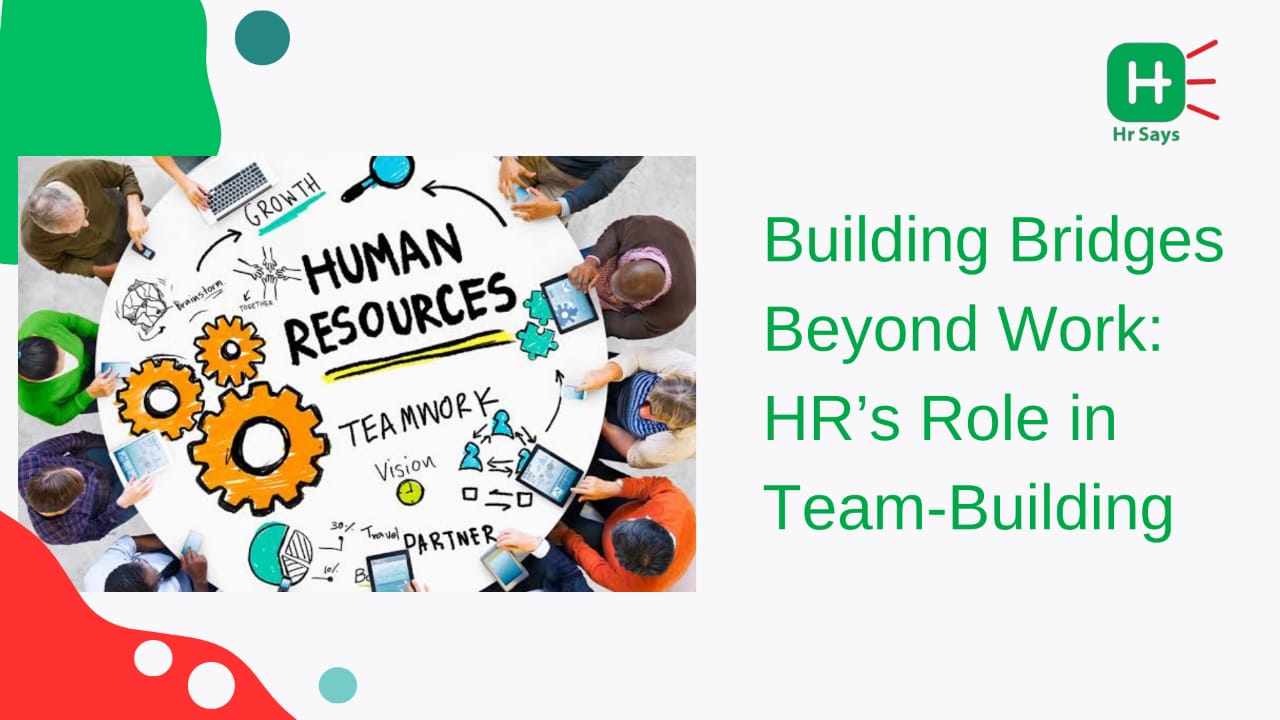What is it that holds a team together even outside the deadlines and meetings? The solution, in many cases, is the ability of the workers to connect with each other, regardless of the activity they take part in. That bridge is a team-building activity and the human resource has a key role in ensuring that it is meaningful.
The Purpose Behind Team-Building
Any activity organized among the employees has an underlying purpose. Fostering team building and trust as well as fun. HR makes sure that such activities are in line with the culture of the company and employees. The connection between two individuals may last longer than the deadline of a project because of a mere game or outing or workshop.
HR as the Planner of Engagement
Planning a team-building activity is not a random task. HR steps in as the architect. From choosing suitable formats to ensuring inclusivity, each detail is mapped carefully. Employees often have different interests, and HR balances these differences by:
● Picking activities that fit diverse preferences
● Ensuring no group feels left out
● Matching activities with organizational goals
This balance helps in making team-building efforts more than just a break from work.
Creating Spaces for Connection
The real challenge lies in creating moments where employees connect beyond job titles. HR focuses on providing such spaces where barriers fall and conversations flow. Indoor workshops, outdoor retreats, or even virtual games are shaped to serve the same purpose: genuine connection. The success of these activities depends not on scale but on their ability to spark interaction.
Encouraging Participation
Participation is key. HR often encourages it by:
● Communicating the value of the activity clearly
● Keeping activities simple and engaging
● Recognizing the time and effort of employees
These small steps reduce hesitation and promote openness.
Building Skills While Building Bonds
Team-building is never only about fun. Skills are built silently in the process. Communication improves, problem-solving sharpens, and adaptability grows. HR ensures activities include elements that benefit both individuals and the organization. For instance, role-play exercises strengthen collaboration, while brainstorming sessions encourage creativity.
The Lasting Impact on Workplace Culture
Team-building, when consistently organized, leaves an imprint on workplace culture. HR becomes the driver of this shift. Trust builds slowly, hierarchies soften, and a sense of belonging strengthens. The effects show in improved teamwork and reduced conflicts. Over time, the organization benefits from higher employee morale and smoother workflows.
Conclusion
Team-building is not an occasional event but a strategy that requires thought and intention. HR’s role is vital in shaping these moments into experiences that build stronger teams. Beyond games and activities, it is about creating a culture where people feel connected and valued.

 HR shapes team-building into more than leisure by aligning activities with culture, skills, and connection. These efforts foster trust, improve collaboration, and build a workplace where employees feel truly engaged.
HR shapes team-building into more than leisure by aligning activities with culture, skills, and connection. These efforts foster trust, improve collaboration, and build a workplace where employees feel truly engaged.








.jpeg)
.jpeg)

.jpeg)





.jpeg)



.jpeg)

.jpeg)



